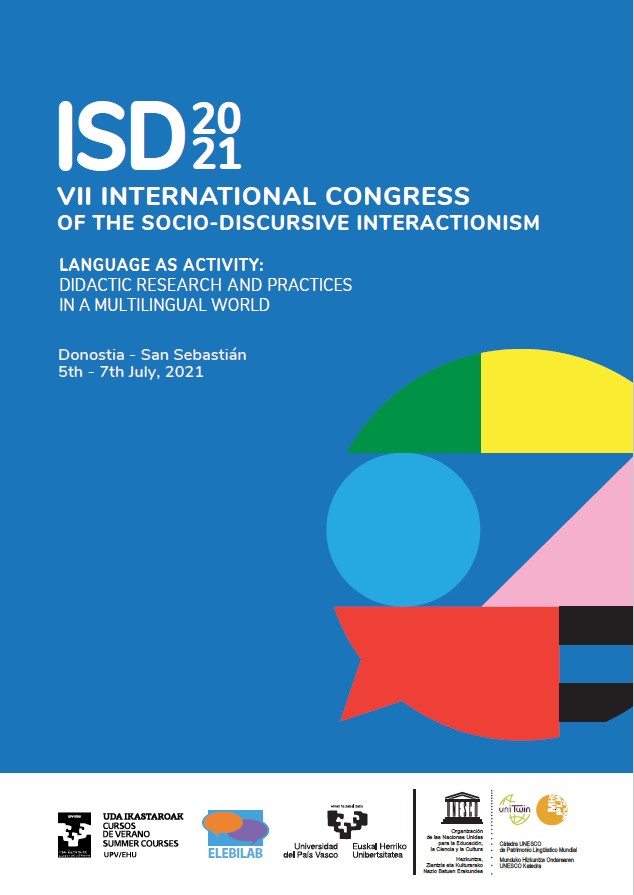Presentation

In 2021, the VII edition of the International Meeting of Socio-discursive Interactionism (ISD: SDI in English) will take place in Donostia-San Sebastián. In this Meeting, research related to the study of socio-discursive interactionism of language will be exchanged and updated. In this seventh meeting, special emphasis will be placed on multilingual education and the effective integration of minority languages into it.
It is the first SDI International Meeting to be held in the Basque Country (and in the Spanish and French States), but the influence of the SDI, thanks to the contributions of our collaborators from the University of Geneva, has greatly contributed to the treatment and study of the languages in the Basque Country and, particularly, to their didactics. Various institutions and documents reflect this influence both with regard to the teaching of languages (Basque and other languages), to children or adults, and with regard to the training of language teachers.
We are convinced that the presence of international researchers will provide the scientific community in general, and the Basque community in particular, the opportunity to broaden our interactionist and socio-discursive vision. It will also develop our knowledge and understanding of linguistic diversity, the functioning of languages and their didactics, so that the study of language and the teaching of languages is approached in an increasingly scientific and efficient way.
Our interest in the study of language activity in multilingual and minority language situations also leads us to open the field of SDI to other approaches, some traditionally related to sociolinguistics, such as the study of new speakers of minority languages, or broadly speaking, the study of revitalization processes of minority languages.
UNESCO's recommendations for linguistic diversity and multilingual education (2014), its initiatives in favour of indigenous languages (IYIL2019), as well as the proposals of the Council of Europe (2019) insist on the need for multilingual training of all citizens.
We believe that we can only effectively contribute to the defence of such diversity, as well as to a global sustainable development, through a multilingual education which actively integrates minority languages.
By the reciprocal dependence of thought and word, it is clear that languages, strictly speaking, are not means to present an already known truth, but are, on the contrary, means to discover a previously unknown truth. The diversity of languages is not due to sounds and signs, but rather a diversity of worldviews (Humboldt, 1820/2000, p.101, apud Bronckart, 2017: 10)
